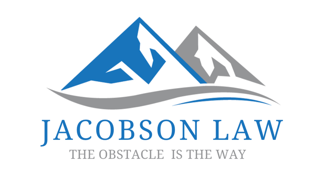Accident lawyer can help you build a robust case for adequate settlement
Boise’s top accident lawyer can help you get an adequate settlement by building a robust case. In the aftermath of an accident resulting in personal injury, the pressing question on many individuals’ minds is, “How long do I have to pursue compensation?” Understanding the legal timeframe, known as the statute of limitations, is crucial for anyone seeking recompense for their injuries in the state of Idaho. In this comprehensive guide, we delve into the intricacies of Idaho’s statute of limitations for personal injury claims, providing clarity and guidance for those navigating the aftermath of an accident.
The Statute of Limitations Explained:
The statute of limitations refers to the timeframe within which an individual must file a lawsuit after suffering harm or injury. This timeframe varies depending on the type of claim and the jurisdiction. In Idaho, the statute of limitations for personal injury claims is governed by state law and can significantly impact an individual’s ability to seek compensation for their injuries.
Understanding Idaho’s Statute of Limitations:
In Idaho, the statute of limitations for personal injury claims is typically two years from the date of the accident or injury. This means that individuals have a limited window of time to initiate legal proceedings against the party responsible for their injuries. Failing to file a lawsuit within this timeframe can result in the forfeiture of the right to seek compensation.
Exceptions and Special Circumstances:
While the general rule in Idaho is a two-year statute of limitations for personal injury claims, there are certain exceptions and special circumstances that may alter this timeframe. For instance, if the injured party is a minor at the time of the accident, the statute of limitations may be tolled, meaning it does not begin until the individual reaches the age of majority. Additionally, if the injury is not immediately apparent or is discovered at a later date, the statute of limitations may be extended based on the date of discovery.
Understanding the Discovery Rule:
In cases where the full extent of an injury is not immediately apparent, Idaho follows the discovery rule. This rule allows the statute of limitations to begin from the date the injury is discovered or reasonably should have been discovered. For example, if an individual suffers internal injuries in a car accident but does not experience symptoms until several months later, the statute of limitations may begin from the date of diagnosis or when the injury should have reasonably been discovered.
Importance of Timely Action:
Understanding and adhering to Idaho’s statute of limitations is crucial for individuals seeking compensation for personal injuries. Failing to take timely action can result in the loss of the right to pursue a claim, leaving injured parties without recourse for their damages. Therefore, it is imperative to consult with a qualified personal injury attorney as soon as possible following an accident to ensure compliance with the statute of limitations and protect one’s legal rights.
Benefits of Seeking Legal Counsel:
Navigating the legal complexities of a personal injury claim can be daunting, especially for individuals grappling with injuries and recovery. Seeking the guidance of a knowledgeable personal injury attorney can provide numerous benefits, including:
- Legal Expertise: A skilled attorney can assess the circumstances of your case, explain your rights, and guide you through the legal process.
- Case Evaluation: An attorney can conduct a thorough investigation into the circumstances of the accident, gather evidence, and determine the strength of your claim.
- Negotiation Skills: Experienced attorneys are adept at negotiating with insurance companies and opposing parties to secure fair and just compensation for their clients.
- Litigation Representation: In the event negotiations fail to yield a satisfactory outcome, an attorney can represent you in court and advocate for your rights before a judge and jury.
The Role of Comparative Negligence in Idaho:
In Idaho, the principle of comparative negligence applies to personal injury cases. Comparative negligence means that the compensation awarded to an injured party may be reduced in proportion to their degree of fault in causing the accident. Idaho follows a modified comparative negligence rule, which states that an injured party can still recover damages as long as their fault does not exceed 50%. However, if the injured party is found to be 50% or more at fault, they may be barred from recovering any compensation. Understanding how comparative negligence may impact a personal injury claim is crucial for individuals seeking compensation in Idaho.
Factors Influencing the Statute of Limitations:
Several factors can influence the statute of limitations for personal injury claims in Idaho. For instance, if the at-fault party is a government entity or employee, special rules and deadlines may apply, including the requirement to file a notice of claim within a shorter timeframe. Additionally, claims involving medical malpractice or product liability may have their own distinct statutes of limitations and procedural requirements. It is essential to consult with an attorney familiar with the specific nuances of your case to ensure compliance with all applicable deadlines and requirements.
The Importance of Preserving Evidence:
Preserving evidence is vital in personal injury cases to support your claim and establish liability. This includes gathering documentation such as medical records, accident reports, witness statements, photographs, and any other evidence related to the accident and your injuries. Acting promptly to preserve evidence can strengthen your case and increase your chances of obtaining fair compensation. Additionally, retaining the services of an attorney early in the process can help ensure that crucial evidence is properly collected and preserved.
Alternative Dispute Resolution Options:
In some cases, pursuing compensation through traditional litigation may not be the most efficient or cost-effective option. Alternative dispute resolution methods, such as mediation or arbitration, offer parties the opportunity to resolve their disputes outside of court with the assistance of a neutral third party. These methods can often lead to quicker resolutions and may help avoid the time and expense of a lengthy trial. Understanding the pros and cons of alternative dispute resolution options can empower individuals to make informed decisions about how to proceed with their personal injury claims.
Navigating the aftermath of a personal injury can be challenging, especially when faced with the complexities of Idaho’s legal system. Understanding the statute of limitations, comparative negligence principles, and other relevant factors is essential for individuals seeking compensation for their injuries. By taking timely action, preserving evidence, and seeking the guidance of a qualified personal injury attorney, injured parties can protect their rights and pursue the compensation they deserve. Remember, the clock is ticking from the date of the accident, so don’t delay in seeking legal advice and taking steps to assert your rights.
Work with Boise’s top accident lawyer
Jacobson & Jacobson Law Firm, since 1982, is committed to serving the Boise and Nampa, Idaho areas for your top Criminal Defense, Personal Injury, Business Law, Estate Planning, Family Law, Immigration Law, and Litigation needs. Contact us today to get started. For a free 30-minute consultation, book here: https://calendly.com/jfj-1


